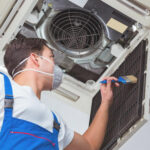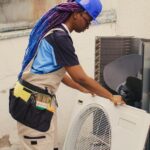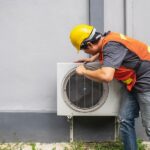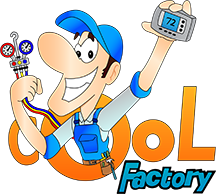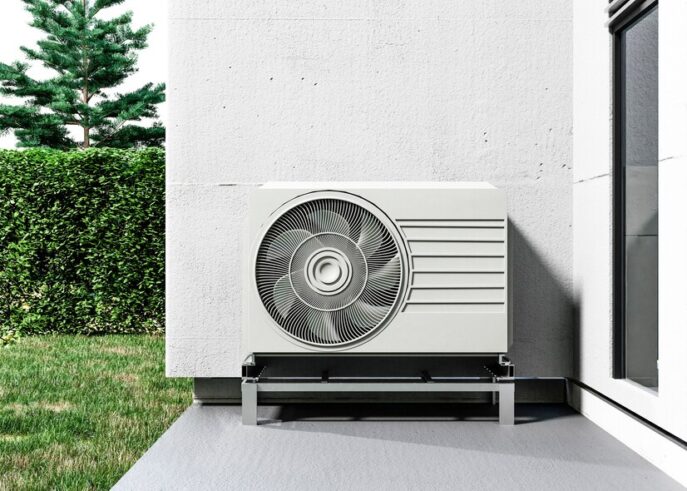
Maximizing Energy Efficiency with Your HVAC System
Maximizing Energy Efficiency with Your HVAC System
HVAC systems are the unsung heroes of comfortable living, silently regulating temperature year-round. But did you know they’re also pivotal in maximizing energy efficiency? In today’s eco-conscious world, understanding how to optimize your HVAC system isn’t just about comfort—it’s about reducing your carbon footprint and saving money. From simple maintenance tips to advanced technological solutions, this blog explores practical strategies to ensure your HVAC system operates at peak efficiency. Get ready to harness the power of your HVAC system for a greener, more cost-effective home.
The Power of HVAC Systems
HVAC systems, short for Heating, Ventilation, and Air Conditioning, are the backbone of contemporary indoor climate management. These systems are tirelessly operational, ensuring our comfort by regulating optimal temperatures and humidity levels throughout the year. Yet, their importance surpasses mere comfort; they wield significant influence over energy consumption and environmental footprint.
Knowing the intricate workings of HVAC systems and methods to boost their efficiency is pivotal in curbing energy wastage and slashing utility expenses. By fine-tuning their operations, we not only elevate our comfort but also actively pave the path towards a more eco-conscious and sustainable future.
Beyond Comfort: Energy Efficiency Matters
In the contemporary landscape, energy efficiency transcends buzzword status to become an imperative. HVAC systems emerge as pivotal players in the energy consumption of residential and commercial structures, underscoring the criticality of their efficiency. Beyond mere comfort, optimizing energy efficiency within HVAC systems holds the promise of significant cost reductions and environmental dividends.
From mitigating carbon emissions to preserving precious natural resources, each stride towards heightened efficiency carries weighty implications. Through the adoption of efficient methodologies and the embrace of cutting-edge technologies, we possess the capacity to metamorphose our HVAC systems from mere comfort facilitators to potent instruments for fostering sustainable lifestyles.
Understanding Your HVAC’s Impact
Your HVAC system isn’t just a machine; it’s a major player in your home’s energy consumption and environmental impact. From the electricity it consumes to the refrigerants it uses, every aspect of your HVAC system has implications for your carbon footprint and utility bills.
Understanding how your HVAC system operates and the factors that influence its efficiency is the first step towards making informed decisions about energy usage and conservation. By grasping the broader impact of your HVAC system, you can take proactive steps to minimize waste and maximize efficiency, benefiting both your wallet and the planet.
Simple Maintenance, Big Savings
For your HVAC system, even minor maintenance efforts yield substantial benefits. Consistent upkeep not only elongates equipment lifespan but also guarantees peak performance and energy efficiency. Basic tasks such as air filter replacements, vent cleanings, and ductwork inspections prove instrumental in averting expensive breakdowns and enhancing indoor air quality.
Moreover, scheduling annual professional maintenance checks serves as a preemptive measure, spotting potential issues before they escalate into costly repairs. By dedicating time and attention to these rudimentary maintenance rituals, you stand to reap remarkable savings on energy expenditures while ensuring seamless operation of your HVAC system for years to come.
Key Components of Efficiency
Efficiency in HVAC systems relies on several pivotal components operating in synergy. These encompass the type and condition of equipment, the design and arrangement of ductwork, insulation quality, and the efficacy of controls such as thermostats and sensors. Each facet assumes a critical role in dictating the operational efficiency of your HVAC system.
Comprehending these components and their interplay empowers you to pinpoint areas ripe for enhancement, thereby optimizing your heating and cooling system’s efficiency. This strategic approach not only culminates in cost savings but also curtails energy consumption, aligning with sustainable practices and fortifying environmental stewardship.
Upgrading for Efficiency: Worth It?
Considering an upgrade to your HVAC system for improved efficiency? It’s a decision that warrants careful consideration. While upgrading can result in long-term energy savings and enhanced comfort, it’s essential to weigh the costs against the potential benefits.
Factors to consider include the age and condition of your current system, the efficiency ratings of newer models, available incentives or rebates for upgrades, and your long-term energy consumption goals. Consulting with HVAC professionals can provide valuable insights into whether an upgrade is worth it for your specific circumstances, helping you make an informed decision that aligns with your budget and priorities.
Smart Thermostats: The Future of Control
Smart thermostats represent a paradigm shift in indoor climate control, heralding a new era of convenience and efficiency. Unlike their conventional counterparts, these cutting-edge devices boast an array of advanced features, including remote accessibility via smartphone apps, adaptive learning capabilities, and seamless integration with smart home ecosystems.
By adeptly managing temperature settings and streamlining energy consumption, smart thermostats not only elevate comfort levels but also yield substantial energy savings. With intuitive interfaces and customizable options, they empower homeowners to exert unprecedented control over their HVAC systems, laying the groundwork for a future characterized by heightened efficiency and interconnected home climate management.
The Role of Insulation in Efficiency
Insulation emerges as an unsung hero in the realm of HVAC efficiency, silently safeguarding optimal indoor climates. By acting as a formidable barrier against heat transfer, it impedes conditioned air from escaping in winter and repels unwanted heat in summer. This critical function alleviates the burden on your HVAC system, sparing it from laboring excessively to maintain desired temperatures.
Consequently, energy waste is minimized, and utility bills are reduced. Vital areas for insulation encompass walls, floors, ceilings, attics, as well as around doors and windows. Through investments in quality insulation and meticulous installation, you unlock the potential to optimize your HVAC system’s efficiency, fostering a more comfortable and energy-conserving indoor ambiance.
Air Quality: A Factor in Efficiency
Air quality emerges as a pivotal factor in HVAC system efficiency, transcending mere comfort considerations. Subpar indoor air quality can trigger a cascade of adverse effects, including clogged filters, diminished airflow, and heightened strain on HVAC equipment. This strain culminates in amplified energy consumption and compromised system performance.
Moreover, common pollutants like dust, pollen, and mold not only exacerbate respiratory ailments and allergies but also undermine overall comfort and well-being. Investing in air quality solutions such as air purifiers, ventilation systems, and routine maintenance represents a proactive approach to rectifying these issues. By fostering cleaner indoor air, you not only optimize HVAC efficiency but also cultivate a healthier environment conducive to familial well-being.
HVAC and Renewable Energy Integration
As the world shifts towards renewable energy sources, the integration of HVAC systems with renewables presents a promising avenue for increasing efficiency and reducing environmental impact. Technologies such as solar panels, geothermal heat pumps, and wind turbines can complement traditional HVAC systems, providing clean, sustainable energy to power heating, cooling, and ventilation processes.
By harnessing renewable energy sources, homeowners and businesses can decrease reliance on fossil fuels, lower carbon emissions, and achieve significant cost savings over time. Integrating renewables with HVAC systems not only enhances efficiency but also contributes to a more sustainable and resilient energy future.
Government Incentives for Efficiency
Governments worldwide recognize the importance of energy efficiency and offer various incentives to encourage individuals and businesses to adopt efficient HVAC systems. These incentives may include tax credits, rebates, grants, and low-interest loans for purchasing energy-efficient equipment, upgrading insulation, or implementing renewable energy solutions.
By taking advantage of these incentives, homeowners and businesses can offset the upfront costs of efficiency upgrades and enjoy long-term savings on energy bills. Additionally, these programs help promote sustainable practices, reduce carbon emissions, and stimulate economic growth in the clean energy sector.
Efficiency in Commercial HVAC Systems
Efficiency is paramount in commercial HVAC systems, where energy consumption can account for a significant portion of operating costs. Commercial buildings often have complex HVAC requirements due to their size, layout, and occupancy patterns, making optimization challenging but essential.
Strategies for improving efficiency in commercial HVAC systems include upgrading to high-efficiency equipment, implementing advanced controls and automation, optimizing ventilation and airflow, and investing in regular maintenance and system monitoring. By prioritizing efficiency, businesses can enhance comfort for occupants, reduce operating expenses, and demonstrate environmental stewardship.
Maximizing Efficiency: Tips and Tricks
Maximizing efficiency in your HVAC system doesn’t have to be complicated. Simple tips and tricks can go a long way in improving performance and reducing energy consumption. Start by regularly changing air filters to ensure proper airflow and minimize strain on the system. Keep vents and registers unobstructed to maintain efficient air distribution throughout your home or building. Consider upgrading to programmable or smart thermostats to optimize temperature settings based on occupancy and preferences.
Schedule annual maintenance checks with a qualified HVAC technician to identify and address potential issues before they escalate. Finally, don’t overlook the importance of proper insulation and sealing to minimize energy loss and maximize comfort. By implementing these strategies, you can maximize the efficiency of your HVAC system and enjoy lower energy bills year-round.
Maximizing energy efficiency with your HVAC system isn’t just a choice—it’s a responsibility towards a greener, more sustainable future. By implementing the strategies discussed in this guide, you can reduce energy waste, lower utility bills, and minimize your environmental footprint. Remember, every small step counts towards significant savings and a healthier planet.
For professional assistance in optimizing your HVAC system for maximum efficiency, contact Cool Factory, Inc. Our experts in Sterling, VA, are ready to provide tailored solutions to meet your needs. Call us at (703) 713-5113 today and take the first step towards a more efficient and sustainable home or business environment.



